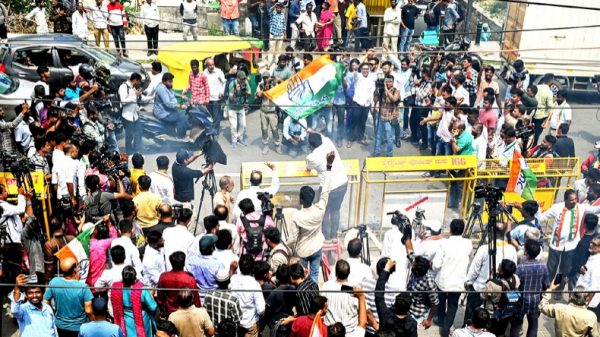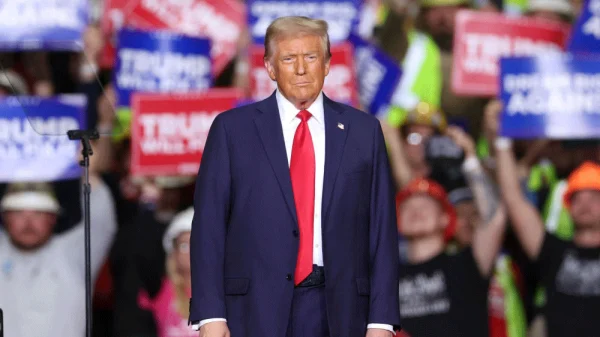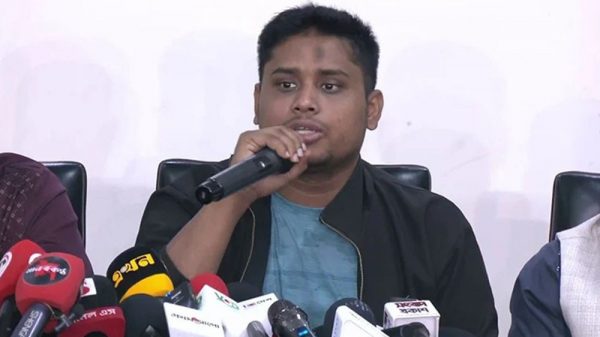What Congress win in Karnataka means

Afsan Chowdhury:
JUST as the Congress was being written off as a party that was slowly fading away from the political space, it won in Karnataka. This is a big surprise because the ‘grand, old party’, as the Congress is often called, received a serious blow after Rahul Gandhi had lost his parliamentary qualification to hold his seat as a result of his alleged slur on Modi’s surname. He has appealed to the Gujarat High Court but the assigned judge recused himself, expressing his inability to listen to the appeal. More drama is expected.
Meanwhile, the Karnataka election came into the centre stage which the under pressure Congress won, defeating the in-power Bharatiya Janata Party. Given the kinds of relative political strength on display, the victory certainly has echoed in many chambers. Indian politics has major ramifications in not just the region but beyond that as well.
Why Congress won
NOT many were expecting this result; so, few analyses are available that predicted such a victory. However, since the win, Indian media has been scrambling to explain what happened. Media commentators in general agree that the biggest factor is that local issues dominate rather than the usual national issues that come with the Modi wave. It was, thus, more of a local campaign.
The Congress party, for example, focused on the corruption of the BJP incumbency. BJP leaders have become both greedy and complacent since being in power. Even the Karnataka State Contractors’ Association said that they had to shell out up to 40 per cent as commission to finish projects and get paid. ‘The 40% government’ became a slogan and it hurt the BJP. The Congress’s strategy of not mentioning national issues or Modi which has helped in the past also helped it to make it a largely local election.
Managing vote clusters
THE Congress also ran targeted campaigns, focusing individually on various castes and Muslims votes. Its support among the scheduled castes was 60 per cent this year— higher than before — and 88 per cent Muslims backed the Congress, say exit polls. The Lingayat community, which has traditionally backed the BJP, did not make a critical difference. So, this approach, instead of a single blanket for all approaches, worked.
This policy to revive the cause of the backward or less privileged communities went well. Former CM Siddaramaiah’s revival of AHINDA, or the platform for backward classes and castes, gave it a mass face which benefited the Congress party at the polls.
Managing infighting
THE two local top leaders — Siddaramaiah and DK Shivakumar — are both rivals, but the central party leadership was able to contain it. This led to joint campaigns, which were a great boost for the party in the internal cohesion, image management and the public mobilisation sector.
BJP looked a bit complacent
THE Bharatiya Janata Party had three major obstacles. Its local leadership was not strong enough to counter the strategy of the recently victorious local leadership of the Congress party. It also lost the support of the Lingayat community on which it over depended. And lastly, its main ally Janata Dal (S) also did badly.
It may also have become complacent because of the Congress party’s apparent lack of clout. The Lingayat reservation demands were listened to only too late and the removal of the Muslim reservation to appease them looked more hurriedly done electoral than political policy based. And the corruption issue did hurt them badly.
Future signs?
MANY are finding signs that the BJP wave has finally washed away, but there is no proof that it has. The Congress has four states including this and Aam Admi Party has two and has become the major opposition parties. However, it shows, just as the BJP has developed incumbency-related weaknesses, the parties opposing it realise that a joint front both within and across parties is what makes a difference.
The BJP wave is real and its strength in the relatively impoverished north India, particularly Uttar Prades and Bihar, is quite unchallenged. There too, some local BJP leaders like Yogi Yadittyanath who are great managers of politics and these factors matter.
Right now the Bharatiya Janata Party has the confidence of the majority of poor and middle-class Hindus as well as the economically aspirant class. Minority issues do not matter and India may well be masking the fact that there is no national issue anywhere other than the rule of the majority. Karnataka showed that. Where there is a division, winning means playing the cluster game which the Congress did well.
Electoral wins are matters of numbers and those who win are the ones who get more votes, not why. The BJP has done that very well till date. Toppling it means learning from the BJP how it did it. Elections are not about idealism; it is about the cynical management of public sentiments and that applies anywhere.
Afsan Chowdhury is a researcher and journalist.























Leave a Reply